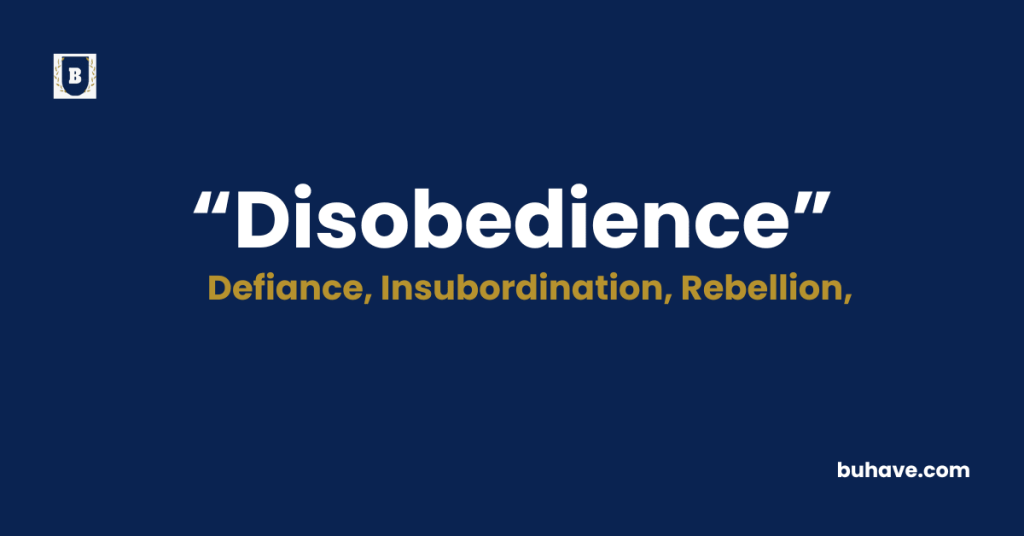The word ‘Disobedience’ (Noun) refers to the act of refusing to follow rules, laws, or authority. In this guide, you’ll learn the full definition, synonyms, antonyms, etymology, and real-life examples of how to use ‘Disobedience’ correctly in sentences.
Disobedience Explained in Depth
A complete and detailed guide to the word Disobedience including meaning, definition, examples, etymology, synonyms, and antonyms.
Meanings of Disobedience
‘Disobedience’ describes the behavior of not complying with rules, instructions, or established norms. It often reflects defiance, resistance, or a challenge to authority.
Definition
Disobedience is the refusal or failure to obey rules, commands, or laws, typically issued by an authority figure. It involves conscious or deliberate resistance and can be personal, social, or political.
Etymology
Derived from Old French desobeissance and Latin dis- (opposite of) + obedientia (obedience), from obedire, meaning “to obey.” The term has been in use since the 14th century to denote a failure or refusal to submit to authority.
Example Sentences
- His disobedience to the school rules led to a suspension.
- Civil disobedience has been a powerful tool for social change.
- Parental frustration often stems from a child’s constant disobedience.
- The military does not tolerate disobedience under any circumstances.
- Her act of disobedience sparked a debate on individual rights.
Disobedience Synonyms
- Defiance
- Rebellion
- Noncompliance
- Insubordination
- Resistance
- Insurrection
- Mutiny
- Contempt
- Unruliness
- Obstinacy
Disobedience Antonyms
- Obedience
- Compliance
- Submission
- Conformity
- Respect
- Subservience
- Deference
- Observance
- Agreement
- Docility
FAQs about Disobedience
Here are some frequently asked questions (FAQs) about the word “Disobedience”
1. Is disobedience always negative?
Not necessarily. Disobedience can be a form of protest or civil resistance against injustice, such as civil disobedience during human rights movements.
2. What is civil disobedience?
It’s the non-violent refusal to obey unjust laws, often used to promote political or social change.
3. Can children be taught positive disobedience?
Yes. Teaching critical thinking helps children understand when it is appropriate to challenge authority respectfully and ethically.
4. How is disobedience viewed in different cultures?
In some cultures, strict obedience is valued; in others, questioning authority may be seen as a strength or necessity for progress.

















